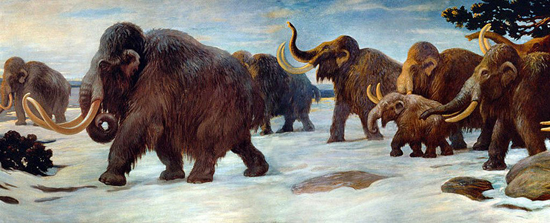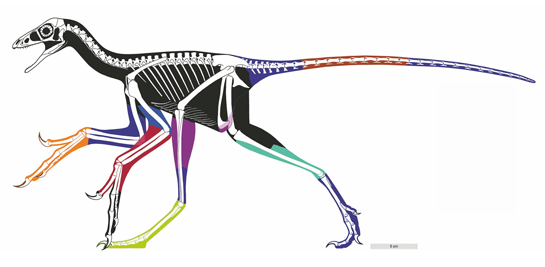Calls for State Legislation to Protect Fossils in British Columbia
British Columbia is proving to be a bit of a “hot spot” for dinosaur fossils at the moment. This is partly due to the continuing efforts of commercial companies to discover new sources of fossil fuels and minerals as well as the efforts of local amateur palaeontologists.
Although this particular part of Canada is often overshadowed by their neighbours in Alberta with all the wonders of the Dinosaur Park Formation, the vastness of British Columbia probably hides a huge amount of new palaeontological data, just waiting to be found.
To read an article about a recent dinosaur discovery in B.C. Potential New Dinosaur Species from British Columbia.
The state has currently got one major dinosaur dig taking place in the north-east of the province. The exact location is being kept a closely guarded secret, but hopes are high for finding plenty of museum quality dinosaur fossils, already some teeth and bones have been excavated and a number of different dinosaur species are represented at the site.
However, the palaeontology team are concerned about protecting the site from the attentions of amateurs and those intent on vandalising the rare and precious artefacts.
Local palaeontologist Lisa Buckley summed up the situation explaining:
“B.C is the only province in Canada that doesn’t have some sort of protective legislation, managing the protection and curation, and conservation and preservation of it’s natural history resources.”
In Alberta, for example it is illegal to remove fossils or other items from dig sites without the appropriate authority, in the USA, the Bureau of Land Management helps protect excavations. In British Columbia there is no such legal protection, hence the need to keep the current dig site under wraps. The palaeontologists involved with the dig, have commented that although amateurs find most of the fossils that lead to site excavations, at a palaeontology dig, even the best intentioned amateur could potentially destroy the rare resources.
Richard McCrae, the lead palaeontologist at the excavation shares his fear for the site’s stability: “We might find after we finish with this site, after we shut it down, we might find a few weeks later when we come check on it that someone has been here and has been digging it up. And that would be too bad.”
The scientists are urging the state to create laws that will protect such sites of special scientific interest. Ideally, the legislation would involve the granting of permits to excavate and credential checks on applicants. They say it’s the only way to ensure that fossils found are properly preserved.
Work is being done in the province to develop a framework that will seek protection for fossils and other natural resources. An announcement is expected in the next few weeks. But McCrae doesn’t believe it will be enough.
“Until there is actual legislation in place, I don’t see anything else being an improvement to the current situation.”
Whilst the work of amateurs in helping to locate new sites is very important and their contribution to the advancement of science is recognised, legislation may be required to protect such excavations. With the high prices rare fossils are fetching on the open market, it may be time to invest in some long-term planning and legal support to help protect British Columbia’s natural fossil resources.
For replicas of prehistoric animals from Canada and elsewhere in the world: Prehistoric Animal Models and Dinosaurs.






Leave A Comment